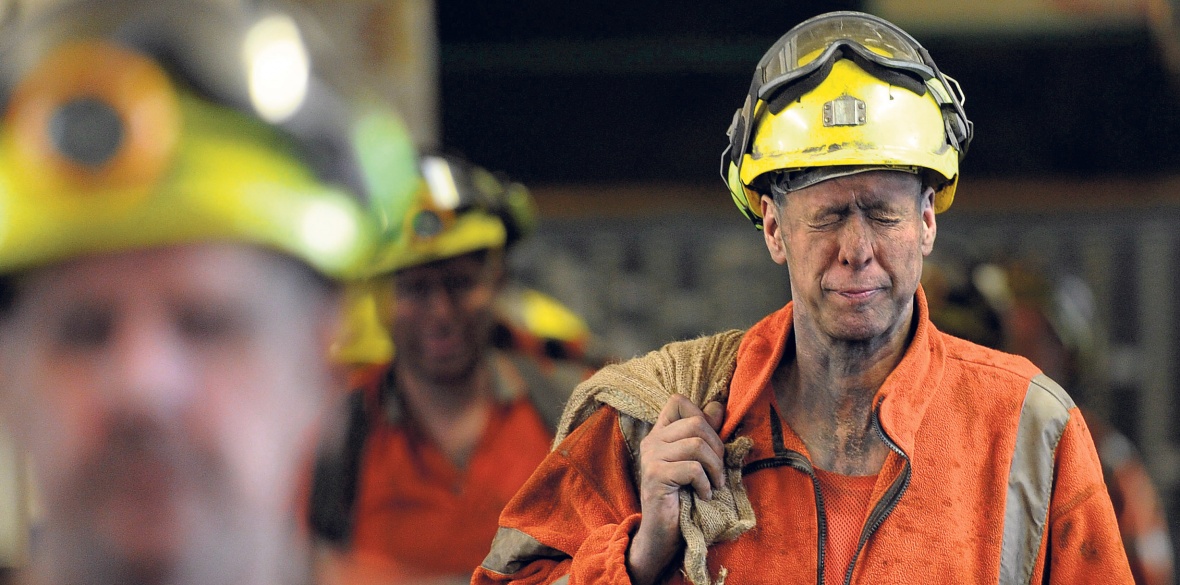This is the last article you can read this month
You can read more article this month
You can read more articles this month
Sorry your limit is up for this month
Reset on:
Please help support the Morning Star by subscribing here
WITH the Labour Party leadership election now well underway, the soul-searching and breast-beating will no doubt continue unabated.
In an attempt to learn from recent events, a number of correspondents to the Star have called for the need for “a proper class analysis” of the situation, but none has attempted to define what they mean by this.
There have been many words written in castigating the loss of “Labour’s heartlands,” of the “working classes deserting Labour” but who has attempted to describe the changes that have taken place, not suddenly at the last election, but over decades under our very noses?
The concentrations of working-class voters were traditionally where the great industries were based: mining and steel industries in Yorkshire, the Scottish lowlands and south Wales, shipbuilding in Glasgow, textiles and manufacturing in Manchester and the docks on Merseyside.
It was in such places that the Labour Party built up its solid base. With the destruction of those industries, the working class as we knew it disappeared also.
Today many of those old industrial areas are wastelands; the young have migrated elsewhere to find jobs or are in badly paid warehouse and service jobs or unemployed, leaving behind the older generation trapped in their ghettos.
The modern working classes in Britain are today concentrated in the service industries, many in the south-east or in out-of-town warehouse and delivery-centre “industrial parks.” They are poorly organised and poorly paid. Any “class analysis” would need to look not only at such tectonic demographic shifts but at the associated changes in class consciousness and culture.
Also as part of such a “class analysis” one would need to look at the role played by local councils over recent decades.
In its traditional heartlands, town and city councils have been run by Labour for decades. But these councils, with rare exceptions, have over time become complacent, lazy and lacking vision. They readily carried out Tory austerity policies without any real attempt to challenge them or explain the issues to their electorates.
When citizens in those areas most hard-hit by Tory policies — nurseries closing, schools underfunded, libraries closing, social care in crisis — see Labour councils carrying out the Tories’ work for them, why would anyone continue to vote Labour?
It is not simply disillusion with Westminster politics or Brexit that determined this recent shift in voting patterns. Despite the real demographic changes mentioned, the large urban Labour strongholds like London, Liverpool, Manchester and Birmingham still returned overwhelmingly Labour MPs in the last election.
Where a real haemorrhage of votes took place was in the surrounding, smaller towns where old industries have gone — as has the younger generation.
And, in this debate, few talk about the old “Labour heartlands” in Scotland where the SNP now reigns supreme. There was no shift to the Tories there and no swing to Brexit parties. Is this perhaps because, unlike in England or Wales, the voters see the SNP as representing their interests, locally and nationally, and are not (yet) disillusioned with that party?
In any class analysis, there needs to be a recognition of these changes and a new assessment of what “working class” means today and where this working class is based and organised.
Nebulous nostalgic references to Labour’s industrial heartlands and narrow concepts of working-class people as only those who get their hands dirty in the mines and factories need to be consigned to the dustbin of history. Once that is done, we can begin making a proper, useful analysis which will help us create a realistic vision for the future and choose the right Labour leadership to bring it about.










